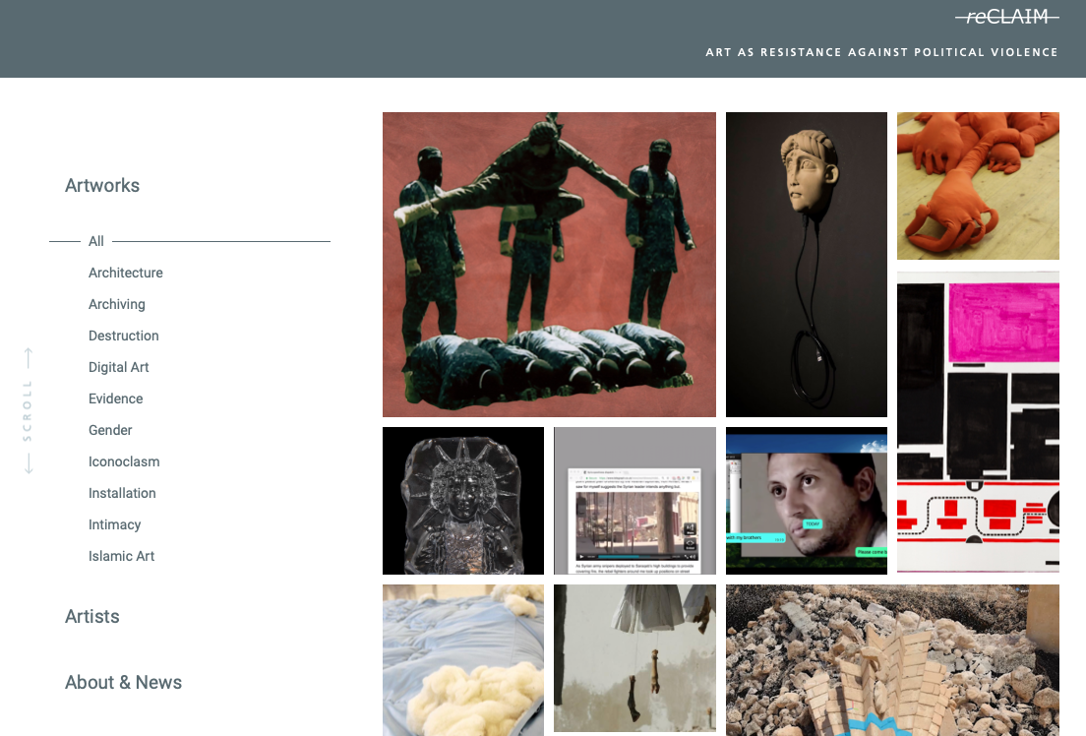
Please be invited to the first INSPIRE seminar this spring with Larissa-Diana Fuhrmann and Simone Pfeifer.
The event will be streamed on Microsoft Teams at this link. reCLAIM is a curated web application, presenting artists and their works opposing various forms of political violence. The website serves as a virtual collection to bring into relation the artists and their work, themes of the different artworks and the writing of the initiators. reCLAIM offers a space to analyse and apprehend these works as part of resistive and activist artistic practices but also relate them to wider configurations of knowledge production about political violence.
In this presentation, Fuhrmann and Pfeifer will introduce the virtual collection and their collaborative research to reflect on the digital curatorial practices as ethnographic approach and intervention. Through zooming in on selected artworks that relate to ISIS imagery and sounds, they seek to illuminate the complexity of political violence of groups such as the so-called Islamic State. Demonstrating the historic continuities of violence such as the invasion and occupation of the region as well as various dimensions of present-day foreign interferences, including “the war on terror”, they discuss and analyse how the platform offers a space for relational audiovisual forms of knowledge production. This offers new ways to show how IS appropriates symbols, narratives, identities and aesthetics and how artists, but also researchers, reappropriate and recontextualise them.
Read more: www.reclaim-platform.de
Simone Pfeifer is a social and cultural anthropologist who focuses on visual, digital and media anthropology. After her postdoctoral position at the University in Mainz she started a new research project on Muslim everyday life and digital media practices in the Research Training Group 'anschließen-ausschließen' at the University of Cologne. In her work she uses digital ethnography and curatorial strategies for the co-creation of knowledge.
Larissa-Diana Fuhrmann is a writer, researcher and curator focusing on artistic appropriation practices in the context of political violence. She is currently doing her PhD on artistic contestations and decolonial perspectives on the violence of the so-called Islamic State. Before joining the University in Mainz for her dissertation she has worked in Sudan's cultural scene for the Goethe-Institute.
The INSPIRE seminar series is a monthly online space where we explore arts-based methods, collaborative methods, ethics of doing research with artists, art as transformation, engaged scholarship - all in the context of violent conflict and war - with invited researchers and artists.





